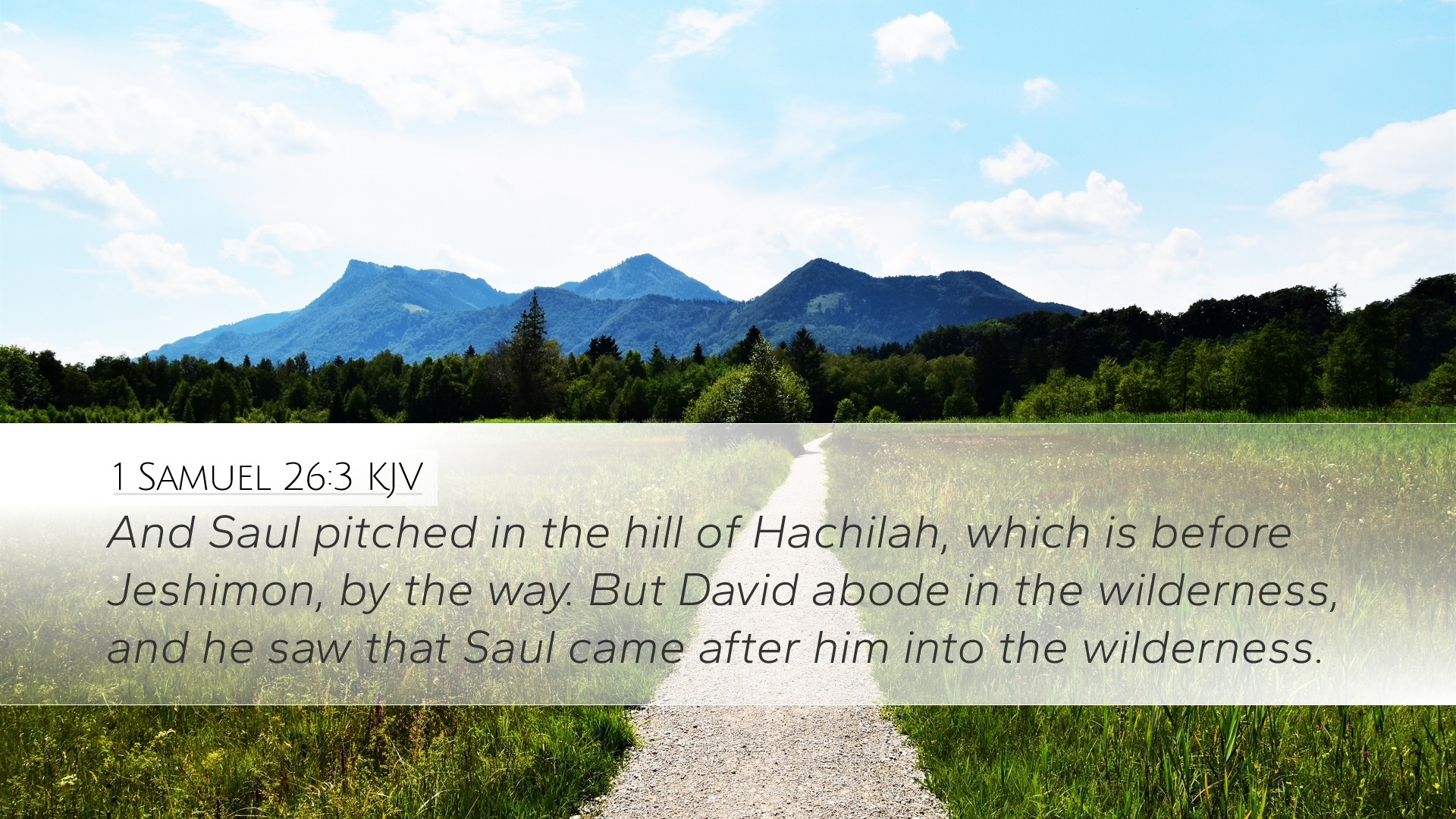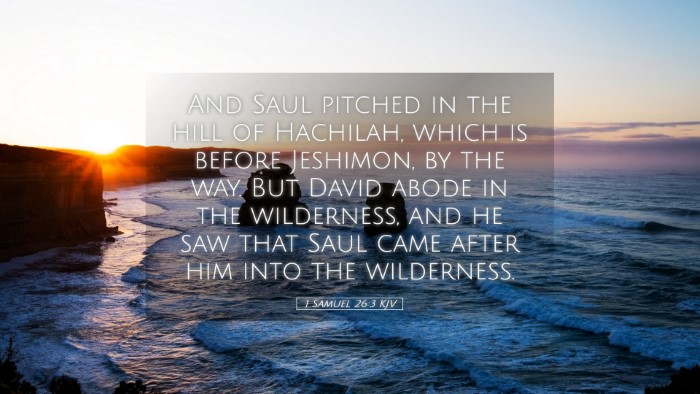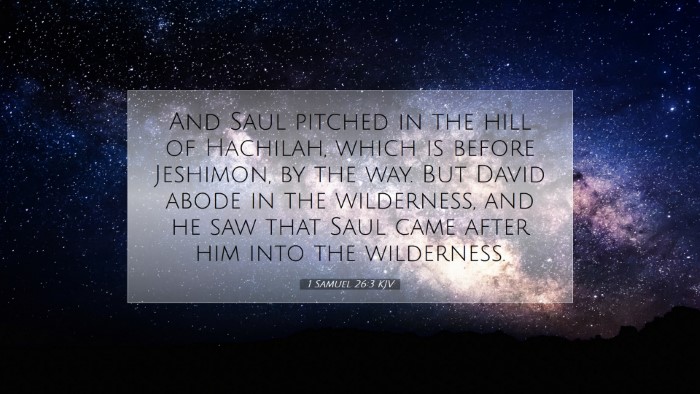Commentary on 1 Samuel 26:3
Verse: 1 Samuel 26:3 - "And Saul pitched in the hill of Hachilah, which is before Jeshimon: and David abode in the wilderness, and he saw that Saul came after him into the wilderness."
Contextual Overview
This verse occurs during a critical period in the life of David, as he finds himself constantly pursued by Saul, King of Israel. David's previous successes in battle and his anointing as the future king posed a threat to Saul, inciting jealousy and fear in the king's heart. Understanding the context of these events is essential for a deeper comprehension of the scripture.
Insights from Public Domain Commentaries
Matthew Henry's Commentary
Matthew Henry emphasizes the divine providence in David's flight and the contrast between David's faithfulness and Saul's relentless pursuit. Saul's decision to camp at Hachilah signifies a strategic move, but it also reveals his desperation. Henry notes that the wilderness serves as a place of both danger and divine protection for David, who, despite being hunted, continues to be in the sight of God's safeguarding hand.
- Divine Providence: David's movements were still under God's control, and the Lord saw him through perilous times.
- David’s Valor: David chooses wilderness as his abode, showcasing his resilience and deep-seated faith in God’s deliverance.
Albert Barnes' Notes on the Bible
Albert Barnes highlights the significance of the wilderness as a recurring theme in David’s life. This harsh environment not only tested David's mettle but also provided a backdrop for his relationship with God, emphasizing themes of solitude, reflection, and reliance on divine support. Barnes suggests that Saul's choice to pursue David into the wilderness was not merely a tactical error but a reflection of Saul's spiritual decline and moral failure.
- The Wilderness: A metaphor for trials faced by believers and the spaces where God manifests His presence the most.
- Contrast of Leadership: David represents a leader who trusts God versus Saul, who leans on his own understanding and power.
Adam Clarke's Commentary
Adam Clarke reflects on the geographical specifics accompanying the narrative. The hill of Hachilah and the surrounding areas provided a strategic point for Saul’s army, but for David, it symbolized the trials he would endure before taking the throne. Clarke draws attention to the psychological warfare between Saul and David — with David aware of Saul’s moves, he operates with a combination of caution and divine guidance. Clarke also notes the futility of Saul's pursuits against David and how this illustrates the lessons of divine favor.
- Saul's Pursuit: Illustrated as futile due to the contrast of divine favor upon David.
- Psychological Warfare: The mental struggles involved in David’s situation resonate deeply with those in leadership positions today.
Theological Implications
The events surrounding 1 Samuel 26:3 have profound theological implications for understanding God’s providence, the nature of true leadership, and the struggle against adversarial forces. Both David and Saul illustrate contrasting paths that reflect the choices individuals make in their spiritual journeys. David’s faithfulness, characterized by his consistent reliance on God, contrasts sharply with Saul's descent into paranoia and despair.
Conclusion and Application
In summary, 1 Samuel 26:3 serves as a critical reminder of God’s sustaining grace amidst adversity. For pastors, students, theologians, and scholars, this passage reflects the ongoing battle of faith, the importance of location in spiritual warfare, and the choices that define a leader’s character.
Applications for Today:
- Recognize the wilderness moments in our lives as opportunities for divine encounters.
- Understand that true leadership requires reliance on God rather than on one’s own strength.
- Embrace the divine guidance that leads through trials, knowing the battle belongs to the Lord.


